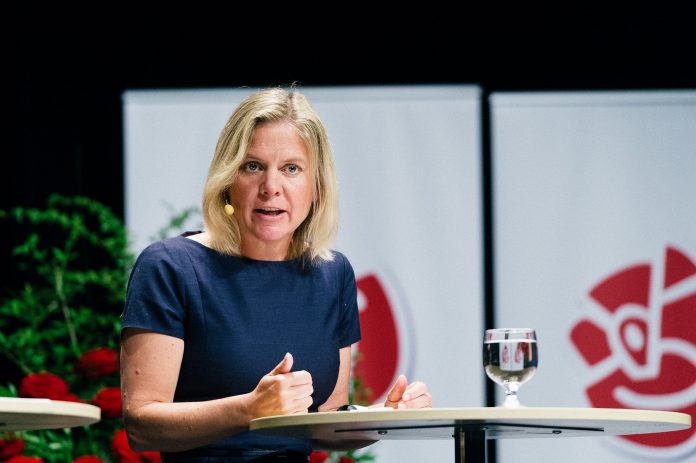It’s time to review the framework of central bank independence, according to Sweden’s Finance Minister Magdalena Andersson. In an interview last week, she argued that more research and discussion will be needed on how central banks and governments can coordinate policy responses in a crisis situation.
“Looking back on the wave of reforms that made central banks independent, it’s obvious today that it wasn’t well thought through,” she said. “There might be situations when fiscal and monetary policy need to work together in a way that’s not possible under the present regulation.’’
As reported by Bloomberg, central bank independence is being increasingly questioned in the aftermath of the financial crisis, which triggered an unprecedented amount of global stimulus involving negative rates and large scale bond buying. The size and length of the response was in part due to governments also cutting back on spending in the face of depleted coffers.
On May 25, US Federal Reserve Chairman Jerome Powell said central banks shouldn’t take their independence for granted at a time when trust in public institutions is at “historic lows,” requiring extra effort to explain their policies. In Turkey, the central bank is struggling to keep the lira up amid mixed signals over whether it’s free of political interference.
In Sweden, the central bank is celebrating its 350th birthday. It gained independence in the early 1990s. It has cut rates well below zero and bought up about half of the country’s bond market.
According to Bloomberg, policymakers have also forced the krona lower over the past few years, but on May 25 found themselves at odds with the country’s debt office as it positioned itself for a stronger exchange rate.
Lawmakers from all political parties in Sweden are now discussing whether fiscal policy should be used more actively when the next downturn comes, amid concerns the central bank’s toolbox will be, if not empty, less prepared to tackle hard times.
Key officials at the European Central Bank have also called on European leaders to create a fiscal-stabilization fund to help the region ride out times of stress.
Charles Goodhart, a professor at the London School of Economics, said the past two decades of central bank independence will probably be remembered fondly by monetary policy makers. As the population ages, interest rates will likely rise, bringing central bankers and government officials more into conflict.
“Quite a lot of central banks that currently have independence will probably lose it to more populist politicians,” he said at a panel debate in Stockholm on May 25. “And the rest will have more difficulty maintaining the independence they’ve had in the past 20 years.”

